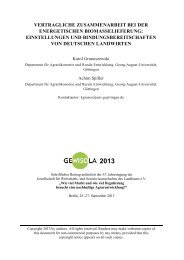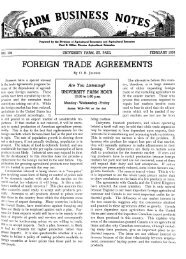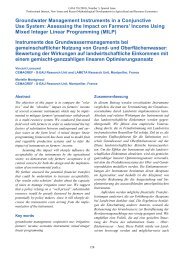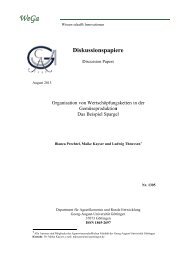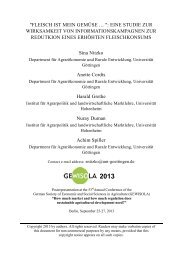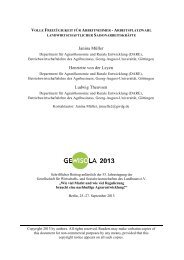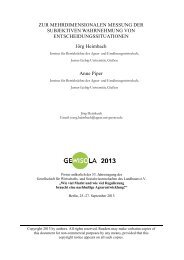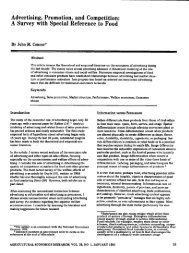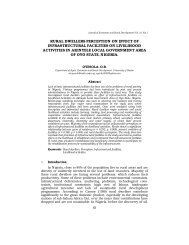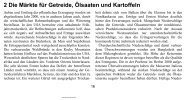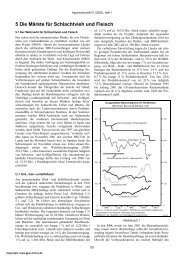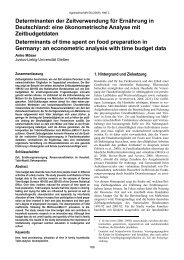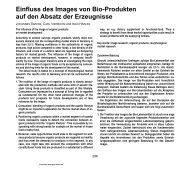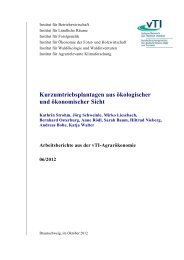District Institutes of Education and Training - Teacher Education
District Institutes of Education and Training - Teacher Education
District Institutes of Education and Training - Teacher Education
Create successful ePaper yourself
Turn your PDF publications into a flip-book with our unique Google optimized e-Paper software.
<strong>District</strong> <strong>Institutes</strong> <strong>of</strong> <strong>Education</strong> <strong>and</strong> <strong>Training</strong>: A Comparative Study in Three Indian States<br />
training ideas <strong>of</strong> the teacher <strong>and</strong> <strong>of</strong> teaching that need to be drawn out <strong>and</strong><br />
discussed, <strong>and</strong> worked through in the course <strong>of</strong> their pr<strong>of</strong>essional preparation.<br />
Some DIETs have, within the existing framework <strong>of</strong> the curriculum, taken steps<br />
internally to promote quality – such as adjusting evaluation procedures, making<br />
practice teaching more meaningful, <strong>and</strong> linking pre-service activities with inservice<br />
training. Other DIETs deliver training without regard to such possibilities.<br />
4.4 Policy implications<br />
An area <strong>of</strong> major concern is that unless the DIET is proactive, the pre-service<br />
course lags behind changes in the school curriculum – even in Gujarat where it had<br />
been changed, the changes were within the existing transmission model that policy<br />
seeks to dismiss in schools. All the DIETs in our sample were graduating teachers who,<br />
albeit to varying degrees, could not fully support contemporary classroom learning.<br />
This chapter provides considerable evidence <strong>of</strong> a need for a radical overhaul <strong>of</strong> preservice<br />
training, linking it firmly with the initiatives that are being put in place in<br />
schools. This overhaul requires a fundamental change to the model <strong>of</strong> pre-service<br />
training. The transmission model does not provide a meaningful preparation for<br />
teaching <strong>and</strong> learning within the competency-based approach. Its focus on<br />
teaching denies student teachers the opportunity to evolve a focus on learning, or<br />
the stance <strong>of</strong> constant evaluation <strong>of</strong> practices in relation to that learning. Unless<br />
such changes are made, pre-service training will continue to promote the view <strong>of</strong><br />
teaching as a technical activity that involves the passing <strong>of</strong> knowledge from teacher<br />
to student according to a set series <strong>of</strong> steps <strong>and</strong> methods. This can only undermine<br />
the efforts being made in schools to gear teaching <strong>and</strong> learning to individual<br />
competencies.<br />
A view <strong>of</strong> teaching that is more in keeping with intended changes in the school<br />
curriculum requires the pre-service course to provide student teachers with<br />
opportunities to engage in experimentation, making sound educational<br />
judgements, <strong>and</strong> reflection on practice in contexts – not as a technician, but as an<br />
emergent craftsperson. It also requires that those who work with student teachers<br />
themselves adopt this approach, <strong>and</strong> points to the need for comprehensive<br />
pr<strong>of</strong>essional development for DIET staff with a clear focus on learning.<br />
DFID 91



